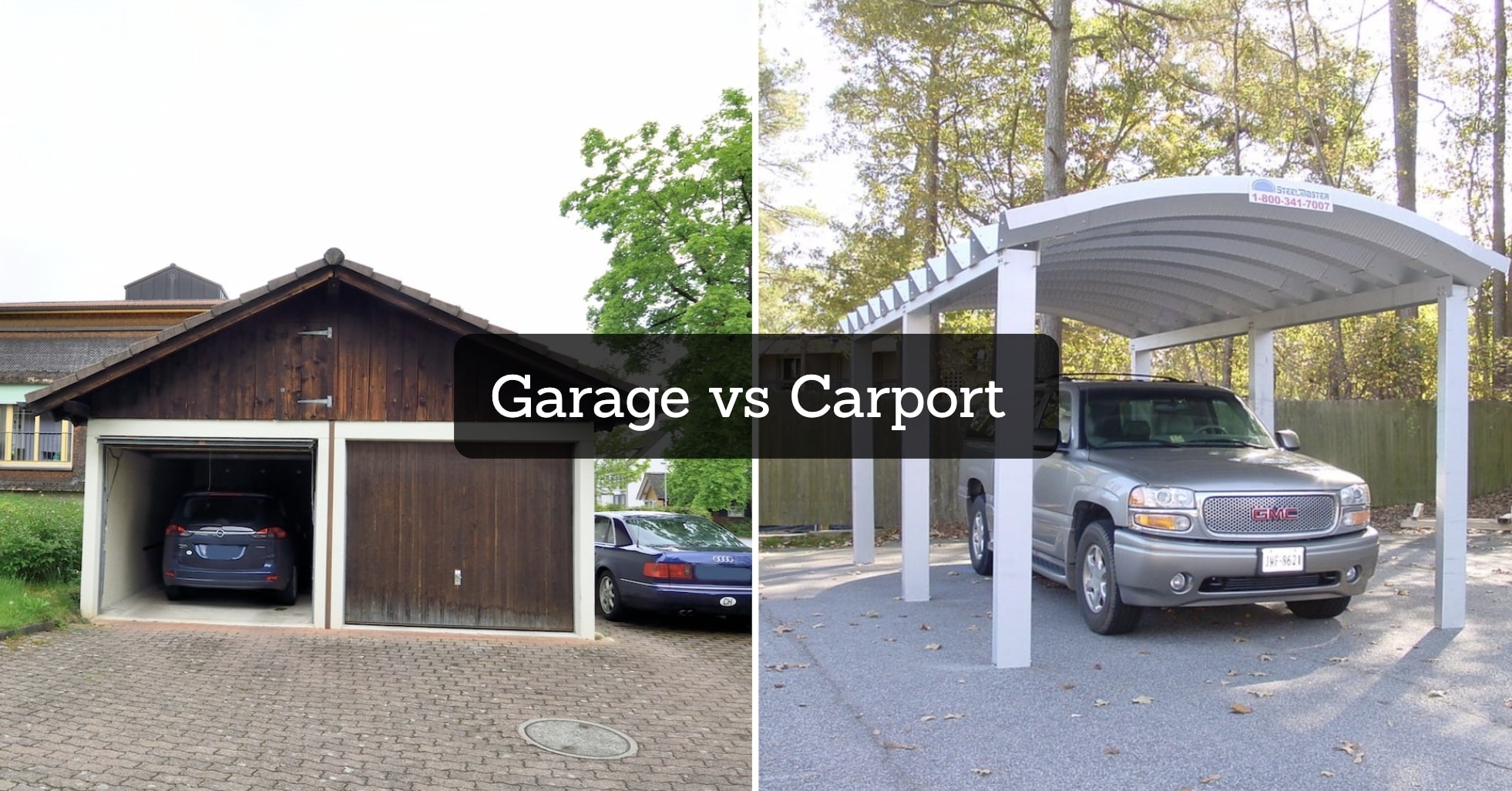When it comes to protecting your precious wheels, the battle lines are drawn: Team Garage versus Team Carport. Each option boasts its own set of advantages and disadvantages, leaving many drivers scratching their heads and wondering, “Which one is right for me?” Fear not, fellow motorist, for this article will dissect the key differences between garages and carports, helping you steer towards the perfect parking solution.
For those considering a more temporary or budget-friendly option, check out this article on these best portable garage kits under $500, which offers alternatives to permanent garages.
Garage: The Enclosed Champion
Imagine a fortress for your four-wheeled friend. That’s the essence of a garage. Boasting walls, a roof, and typically a lockable door, it offers unparalleled protection from the elements, theft, and even curious critters.
Pros:
- Ultimate security: Lock it up tight and say goodbye to worries about weather damage, vandalism, or animal intrusions.
- Climate control: Garages can shield your car from scorching sun, hailstorms, and even snow buildup, keeping it in pristine condition.
- Storage haven: Transform your garage into a multi-purpose haven for tools, bikes, sports equipment, or even a DIY workshop.
- Curb appeal: A well-maintained garage can boost your property value and add a touch of architectural charm.
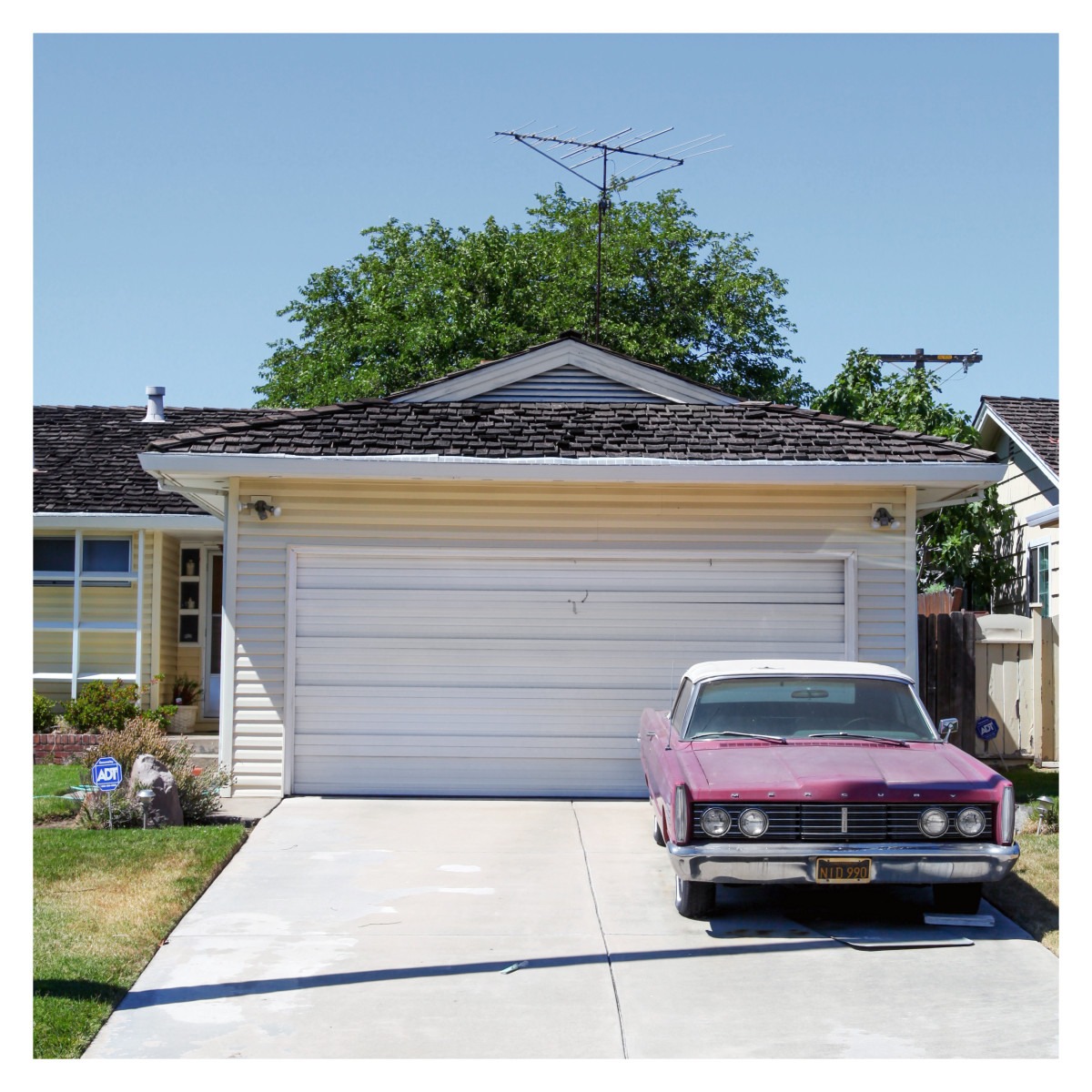
Cons:
- Costly castle: Garages require more materials and construction expertise, translating to a higher price tag compared to carports.
- Space hog: Garages can eat up valuable yard real estate, especially in tight urban areas.
- Maintenance matters: Walls, doors, and roofs demand regular upkeep to maintain their protective qualities.
You may also like: 7 Best 2-Car Wood Garage Kits
Carport: The Open-Air Oasis
Picture a breezy, minimalist shelter for your car. That’s the carport’s domain. Offering a roof overhead, it provides basic protection from sun and rain, while leaving the sides exposed.
Pros:
- Budget-friendly breeze: Carports are significantly cheaper than garages due to their simpler structure.
- Easy breezy: The open design allows for better air circulation, preventing moisture buildup and heat traps.
- Quick construction: Carports require less time and effort to build, making them ideal for DIY enthusiasts or those seeking a speedy solution.
- Space saver: Their compact footprint leaves more room for landscaping, gardens, or other outdoor activities.
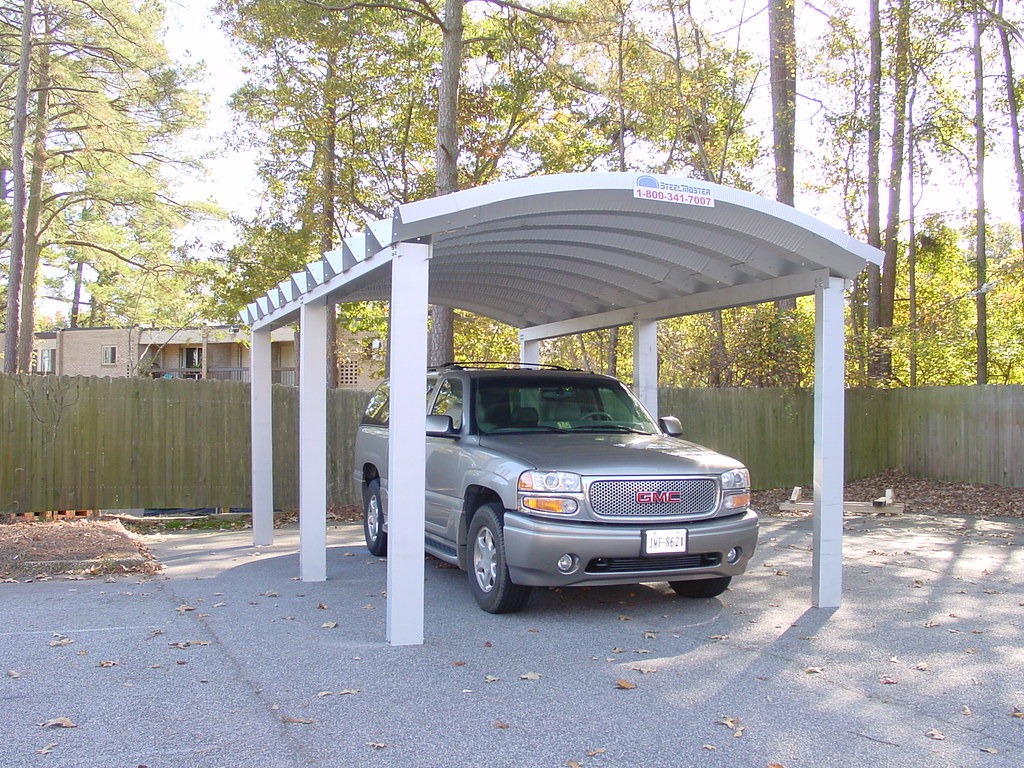
Cons:
- Limited protection: Carports offer no shield against theft, harsh weather (like snow or hail), or animal invasions.
- Security concerns: Leaving valuables in an open carport might be tempting for opportunistic thieves.
- Less storage: The lack of walls restricts storage options compared to a fully enclosed garage.
- Curb appeal conundrum: Some communities have strict regulations regarding carport design and placement, potentially impacting your property’s aesthetics.
So, which team should you join? The answer lies in your individual needs and priorities. Consider these factors:
Climate
When deciding between a garage and a carport, climate plays a starring role. Here’s a deeper dive into how each contender fares in different weather conditions:
Hot Climates:
- Garage: Winner! The enclosed space shields your car from scorching sun, preventing interior heat buildup and protecting delicate components. Insulation and air conditioning further enhance comfort and prevent engine damage.
- Carport: Loser. While offering shade, an open carport exposes your car to direct sunlight, leading to interior heat issues and potential component degradation.
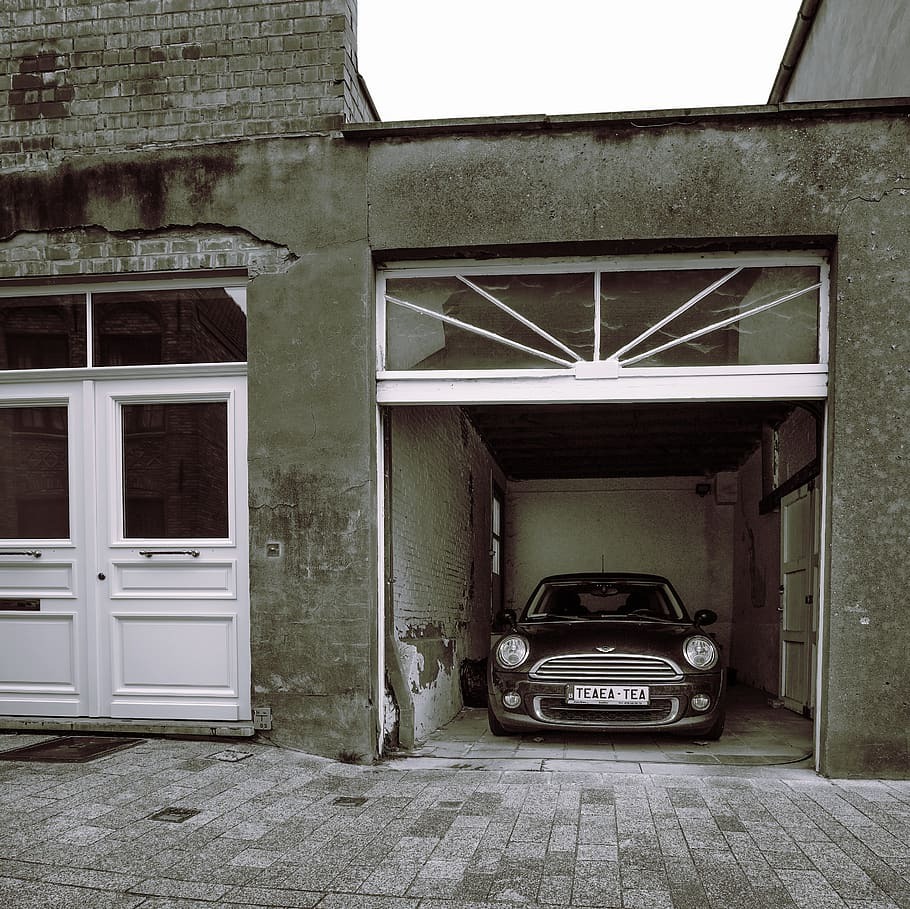
Cold Climates:
- Garage: Winner! Walls and insulation shield your car from snow, sleet, and freezing temperatures, preventing engine problems and keeping the interior comfortable. Heated garages become havens for car maintenance and defrosting.
- Carport: Loser. Exposed to snow accumulation and freezing temperatures, your car suffers, potentially leading to engine issues and difficult starts. Snow removal becomes an additional burden.
Rainy Climates:
- Garage: Winner! Walls and a roof offer complete protection from heavy rain, preventing water damage to the interior and electrical components.
- Carport: Loser. While offering some overhead protection, rain can still blow in, potentially impacting the car’s interior and creating a damp environment.
Windy Climates:
- Garage: Winner! Enclosed walls provide shelter from strong winds, protecting your car from debris and potential damage.
- Carport: Loser. Exposed to wind gusts, your car becomes vulnerable to flying debris and potential harm.
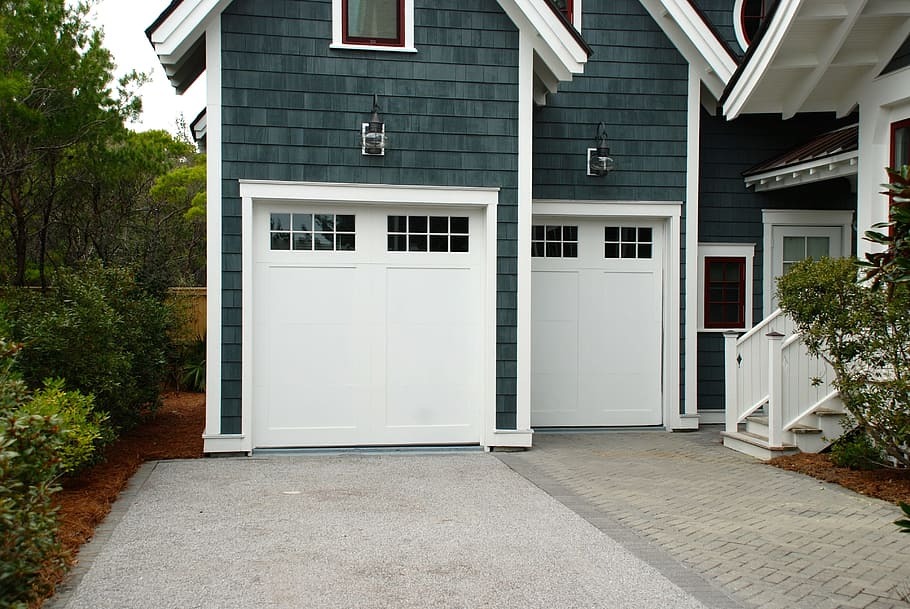
Mixed Climates:
- Garage: Still the champion! Its versatility offers year-round protection from diverse weather conditions, making it a wise investment in unpredictable climates.
- Carport: While suitable for mild, consistent climates, it struggles in areas with extreme weather variations.
Even in milder climates, consider occasional harsh weather events. A carport might seem sufficient until a sudden hailstorm throws a wrench (or pebble) into your plans.
Ultimately, the climate champion depends on your location and weather patterns. But by understanding how each contender handles different conditions, you can make an informed decision that parks your car – and your peace of mind – comfortably.
You may also like: 7 Best Pole Barn Garage Kits
Security
When it comes to safeguarding your cherished vehicle, security stands tall as a crucial deciding factor. Let’s explore how our contenders, the garage and the carport, fare in the battle for peace of mind.
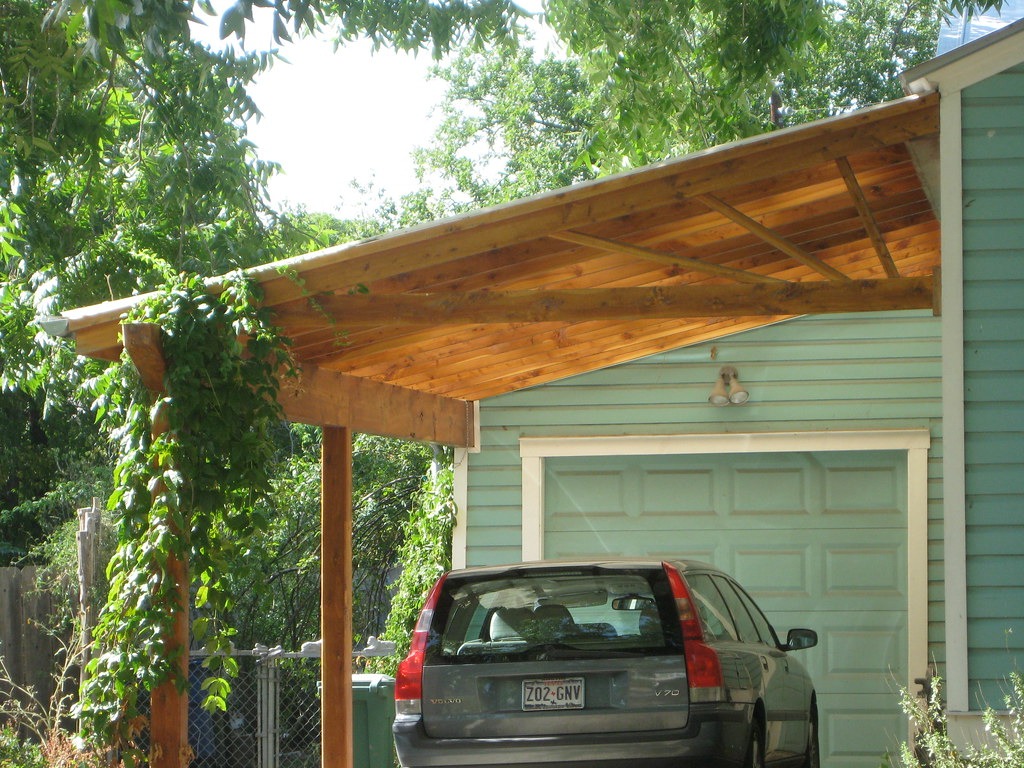
Physical Security:
- Garage: Undisputed Champion! Walls and a sturdy door create a physical barrier, making it much harder for thieves to gain access. Secure locks and alarm systems further bolster protection.
- Carport: Vulnerable Challenger. Open sides and lack of doors leave your car exposed to theft, vandalism, and weather damage.
Deterrence:
- Garage: Intimidating Presence. The enclosed structure discourages casual opportunists and makes targeted break-ins more challenging.
- Carport: Open Invitation. The visible nature of your car might attract unwanted attention, especially in high-crime areas.
Valuable Storage:
- Garage: Secure Haven. Valuable tools, bikes, outdoor equipment, and even personal belongings find safe haven within the locked garage, deterring theft and protecting them from the elements.
- Carport: Limited Protection. While you can store items under a carport, they remain exposed to theft and weather damage unless secured in additional containers.
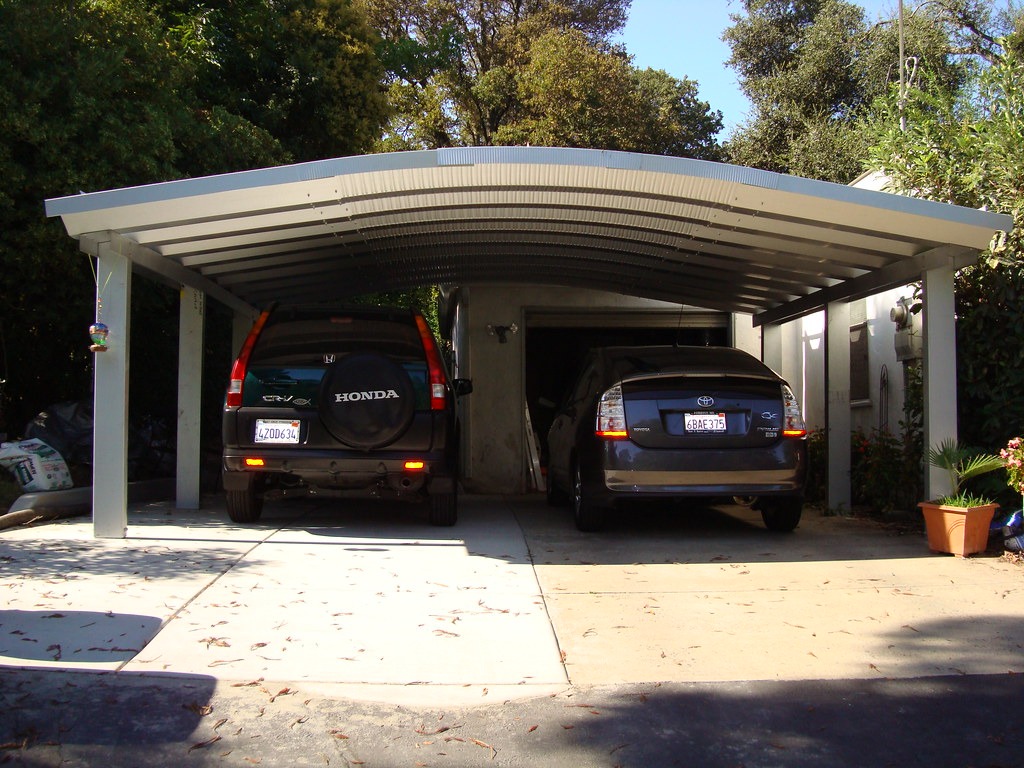
Additional Security Measures:
- Garage: Customizable Fortress. You can enhance security with motion sensors, security cameras, and even reinforced doors to create a multi-layered defense.
- Carport: Limited Options. Adding security measures to a carport requires additional investments and might not offer the same level of protection as a fully enclosed garage.
Insurance Considerations:
- Garage: Potential Discounts. Some insurance companies offer discounts for vehicles stored in garages due to the lower risk of theft and damage.
- Carport: No Discounts. You might not qualify for the same insurance discounts compared to a garage-stored vehicle.
Security needs vary depending on your neighborhood, crime rates, and the value of your vehicle. While a carport might offer basic protection in low-risk areas, a garage reigns supreme for comprehensive security and peace of mind, especially for valuable cars or vulnerable belongings stored alongside them.
Storage needs
When it comes to storage needs, both garages and carports offer solutions, but cater to different priorities. Let’s unpack their storage capacity and versatility.
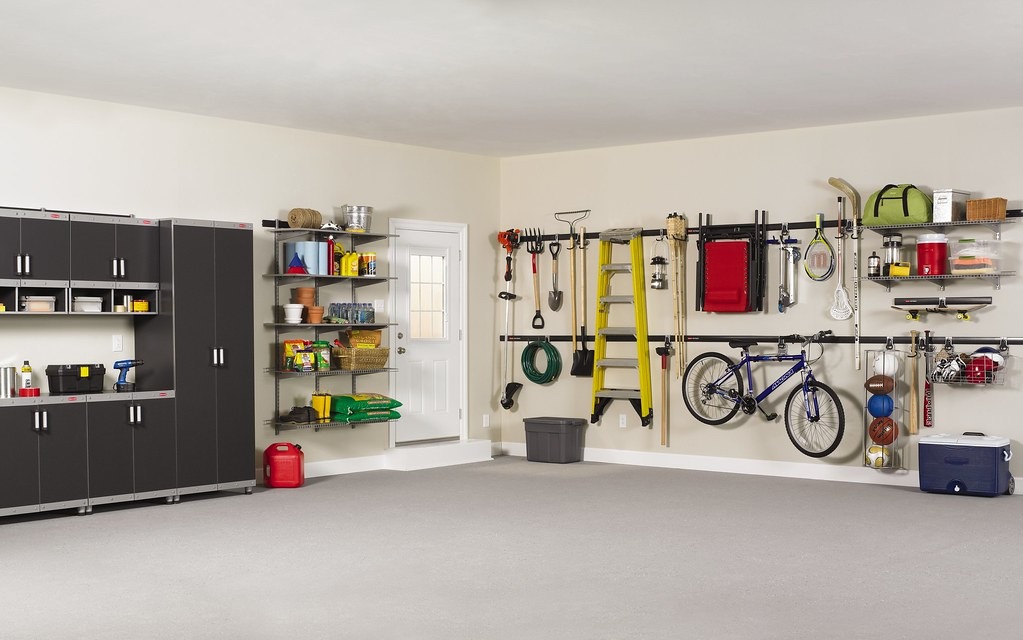
Storage King:
- Garage: Undisputed champion! With four walls and a roof, garages offer unrivaled storage space. You can transform them into workshops, gyms, home offices, or just store tools, bikes, lawn equipment, holiday decorations, and more. Shelving, cabinets, and pegboards maximize their potential.
- Carport: Limited contender. Although you can store items under a carport, they remain exposed to the elements and require additional protection like weatherproof containers or tarps. Storage versatility is restricted to bulky items like firewood or patio furniture.
Car Capacity:
- Garage: Winner for multiple vehicles! Garages typically accommodate larger vehicles or multiple cars comfortably, depending on size and layout.
- Carport: Single focus. Carports usually cater to single cars or smaller vehicles, potentially feeling cramped with larger models.
Organization and Accessibility:
- Garage: Customizable haven. Walls and doors allow for organized storage with shelves, cabinets, and designated areas for different items. Accessibility is controlled through the door, offering security and keeping clutter out of sight.
- Carport: Open and exposed. Organization is limited, and stored items are readily visible. Accessibility is easier, but weather protection necessitates additional containers or frequent covering/uncovering.
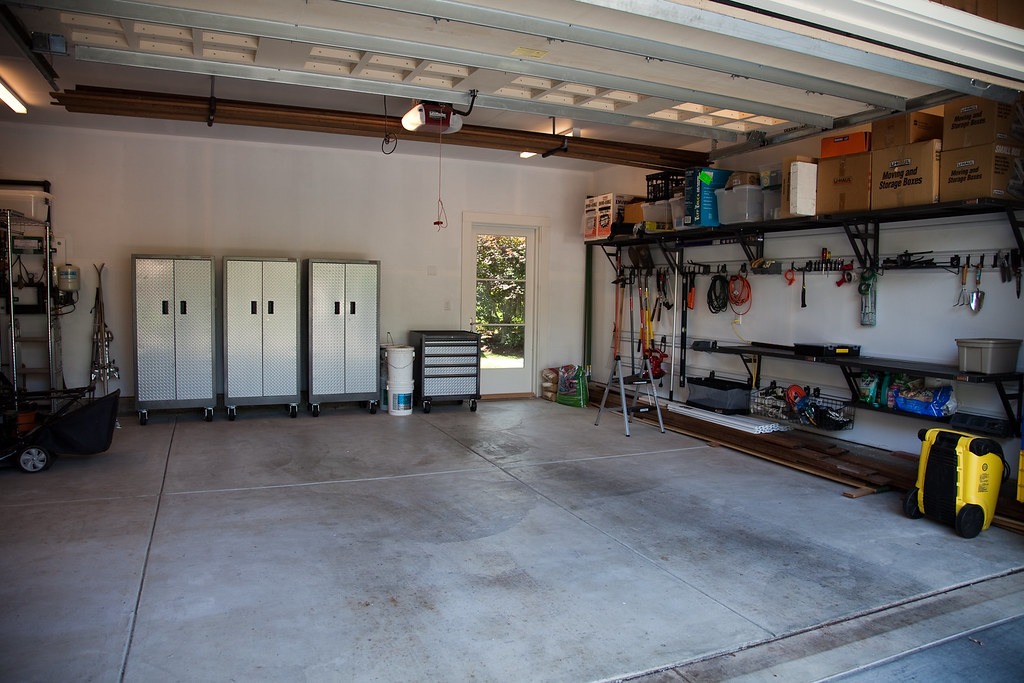
Your storage needs might evolve over time. A garage’s adaptability provides long-term value, while a carport’s limitations might become restrictive down the line. If you value organized storage for various items beyond your vehicle, a garage reigns supreme. However, if your primary focus is basic weather protection for a single car and you have minimal storage needs, a carport might suffice.
Budget
The battle between garage and carport often comes down to the bottom line – your budget. Let’s delve into the financial implications of each contender.
Cost Champion:
- Garage: Heavyweight spender. Walls, a roof, a door, and potentially foundation work translate to higher costs. Materials like wood, concrete, or brick increase the price tag further. Custom designs further inflate the budget.
- Carport: Undisputed victor! Carports are significantly cheaper to build and install than garages. Materials like metal, fabric, or wood frames require less investment and construction complexity. Prefabricated kits offer further affordability.
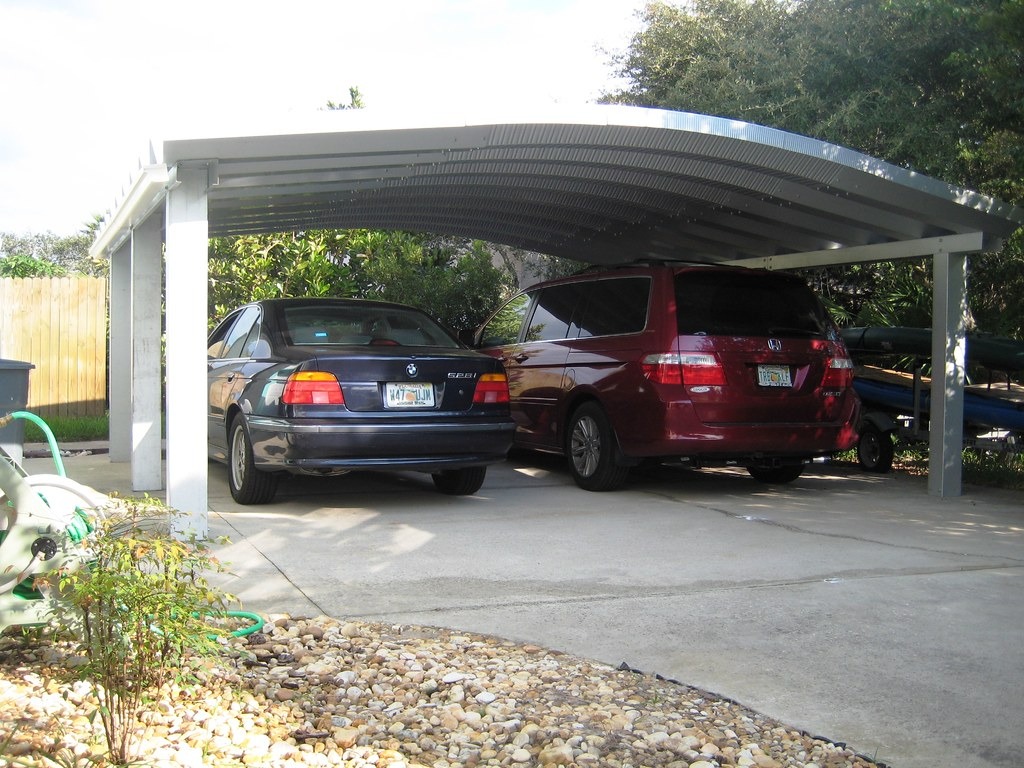
Long-Term Value:
- Garage: Potential investment booster. While initially expensive, attached garages often add more value to your property, potentially recouping some of the investment cost upon resale.
- Carport: Value impact varies. Detached carports might not significantly impact property value, while attached carports with higher-quality materials could offer some value addition.
Maintenance Costs:
- Garage: Ongoing expenses. Roofs, doors, walls, and foundations require regular maintenance, adding to long-term costs.
- Carport: Lower upkeep. Simpler structures typically require less frequent and expensive maintenance.
Additional Considerations:
- Permits: Garages often require building permits, adding to overall cost. Carports might have fewer permit requirements depending on size and locality.
- DIY Potential: If you’re handy, building a simple carport could be a cost-saving option. Garages typically require professional expertise due to their complexity.
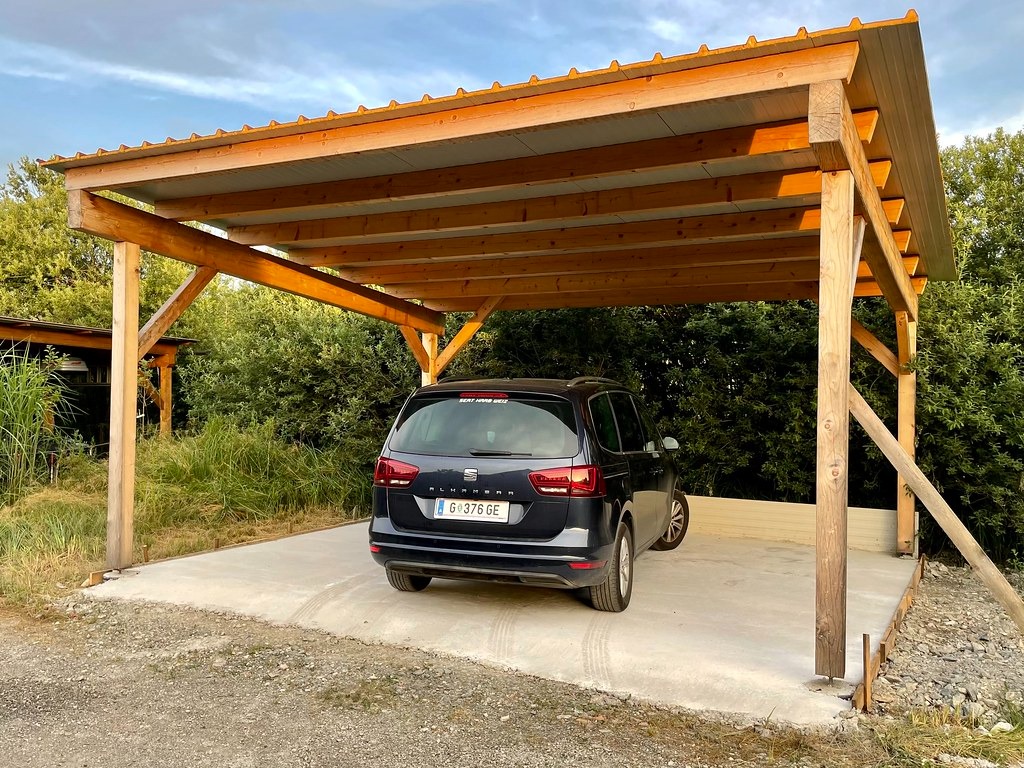
Budget flexibility plays a crucial role. While carports offer immediate affordability, consider the potential long-term value addition of a garage and weigh it against your financial priorities. If budget reigns supreme, a carport might be your champion. However, if long-term value and property enhancement are important, a garage might be a worthwhile investment.
You may also like: 7 Best Prefab Garage Kits with Loft
Ease of Installation
When it comes to getting your car under shelter quickly and efficiently, both garages and carports offer different levels of ease in installation.
Carport: Agile Challenger
- Prefabs Rule: Many carports come as prefabricated kits, requiring minimal assembly and construction expertise. This translates to faster installation times and potentially lower labor costs.
- DIY Delight: With simpler structures and readily available materials, handy homeowners can often tackle carport installation themselves, further reducing costs and timelines.
- Foundation Flexibility: Depending on the size and design, carports might not require complex foundations, simplifying the installation process.
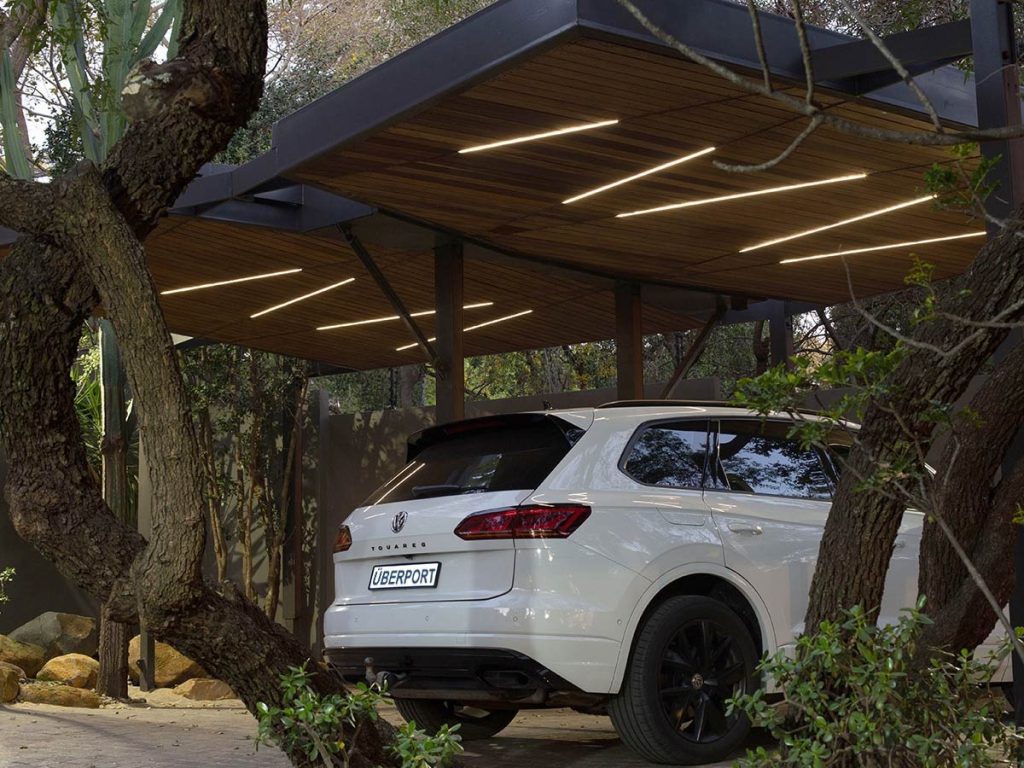
Garage: Heavyweight Contender
- Complex Construction: Walls, roofs, and foundations require skilled labor and precise construction techniques, leading to longer installation times and potentially higher costs.
- Professional Expertise: Unless you’re a seasoned builder, garage construction usually requires hiring professionals, adding to the overall timeframe and budget.
- Permits and Regulations: Building permits and adherence to local regulations can add complexity and delays to the garage installation process.
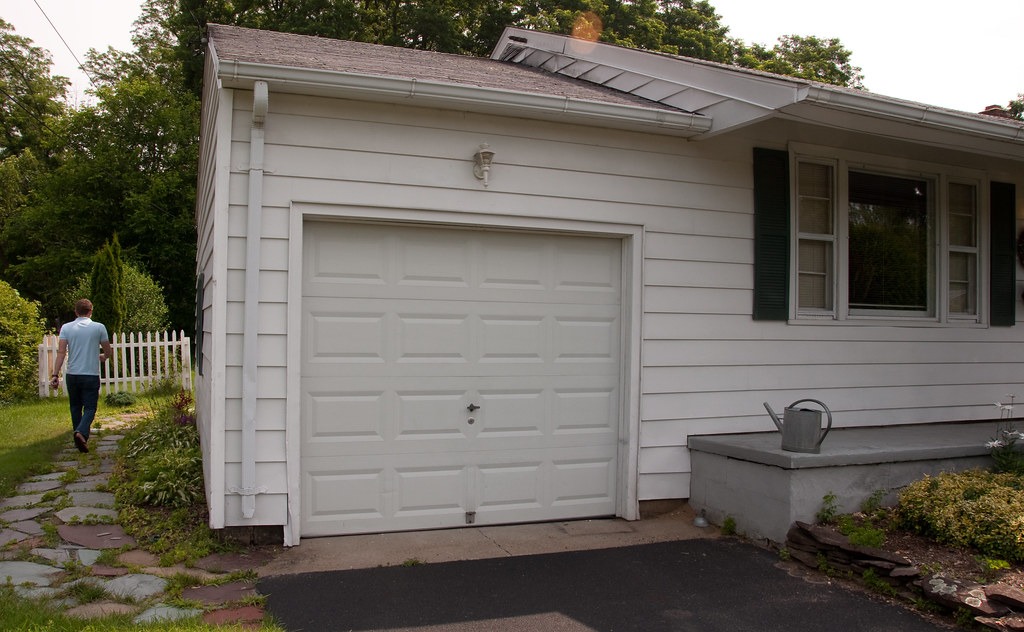
While carports offer a clear advantage in ease and speed of installation, factors like size, design complexity, and local regulations can affect both options. If getting your car under cover quickly is a top priority, a prefabricated carport might be your champion. However, if you have the time, budget, and DIY skills, building a custom garage could offer greater long-term flexibility and personalization.
Material
When choosing between a garage and a carport, the materials they’re built from play a significant role in durability, aesthetics, and overall cost. Let’s explore the material matchup.
Garage:
- Wood: Classic and customizable, but requires regular maintenance to withstand weather and insects.
- Concrete: Durable and fire-resistant, but expensive and requires skilled construction.
- Brick: Traditional and aesthetically pleasing, but requires skilled labor and is costly.
- Metal: Durable and low-maintenance, but can be susceptible to rust and heat transfer.
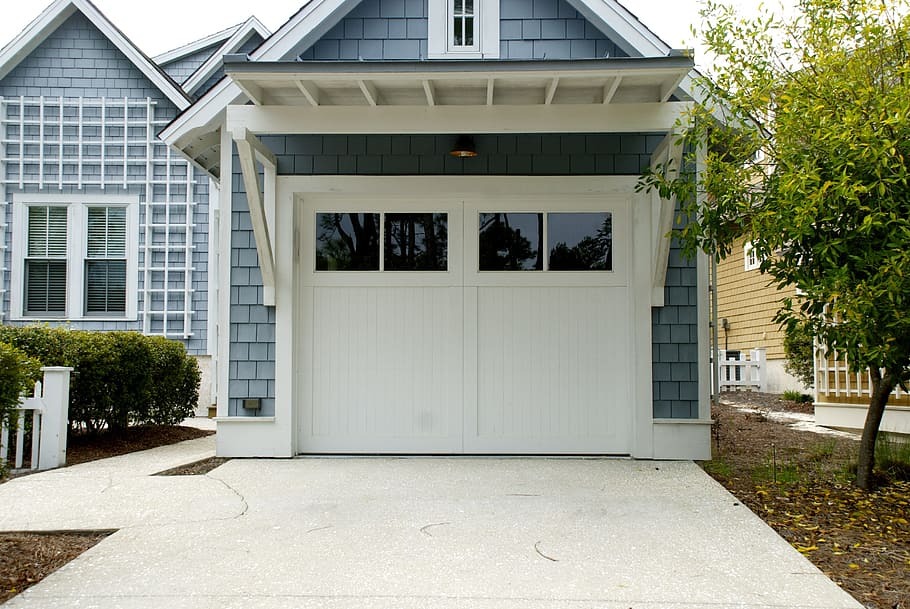
Carport:
- Metal: The most popular choice due to affordability, durability, and ease of installation. However, can be noisy in hail or rain and offers limited insulation.
- Fabric: A lightweight and budget-friendly option, but offers minimal protection from sun and rain, and needs frequent replacement.
- Wood: Aesthetically pleasing and customizable, but requires more maintenance than metal and might not be suitable for all climates.
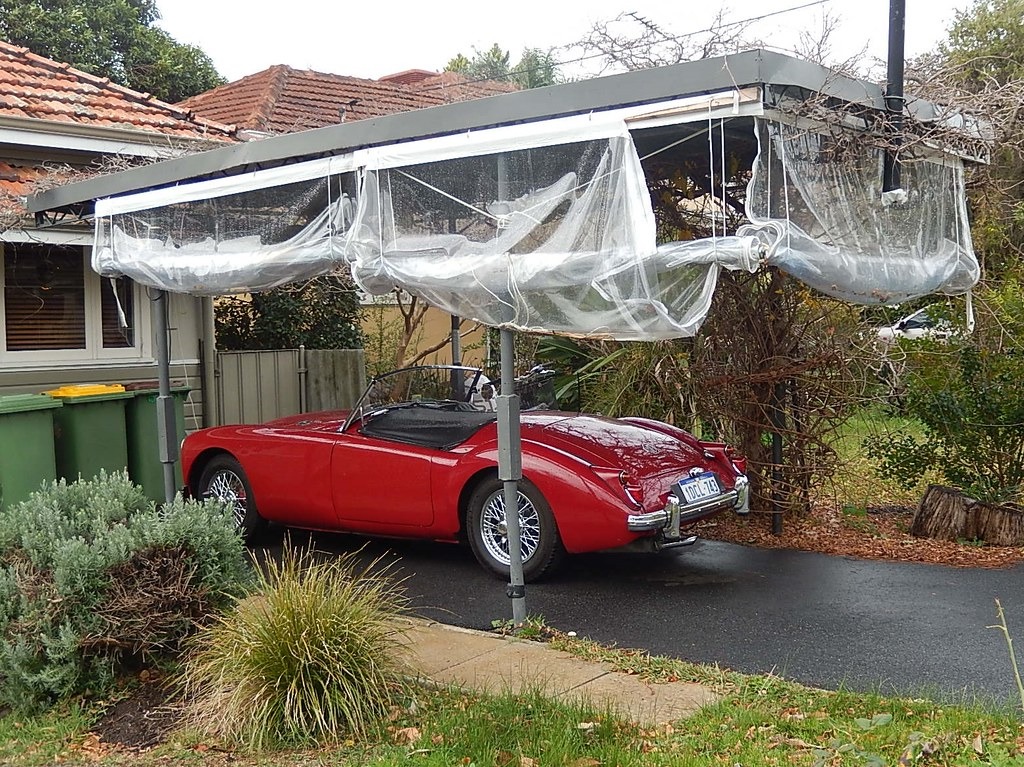
Durability Champions:
- Concrete and brick garages: Winners for long-term durability and weather resistance.
- Metal carports: Champions for affordability and minimal maintenance.
Aesthetics:
- Wood garages: Winners for a classic and customizable look.
- Brick garages: Champions for a traditional and elegant appearance.
- Fabric carports: Offer customizable colors and designs for a modern touch.
Cost Considerations:
- Wood and metal are generally the most affordable options for both garages and carports.
- Concrete and brick garages are the most expensive, followed by brick carports.
- Fabric carports are the cheapest option but have the shortest lifespan.
Climate Considerations:
- Wood requires more maintenance, especially in humid climates.
- Metal can conduct heat in hot climates and be noisy in hailstorms.
- Fabric offers minimal protection from extreme weather.
- Concrete and brick are suitable for most climates but can be pricier.
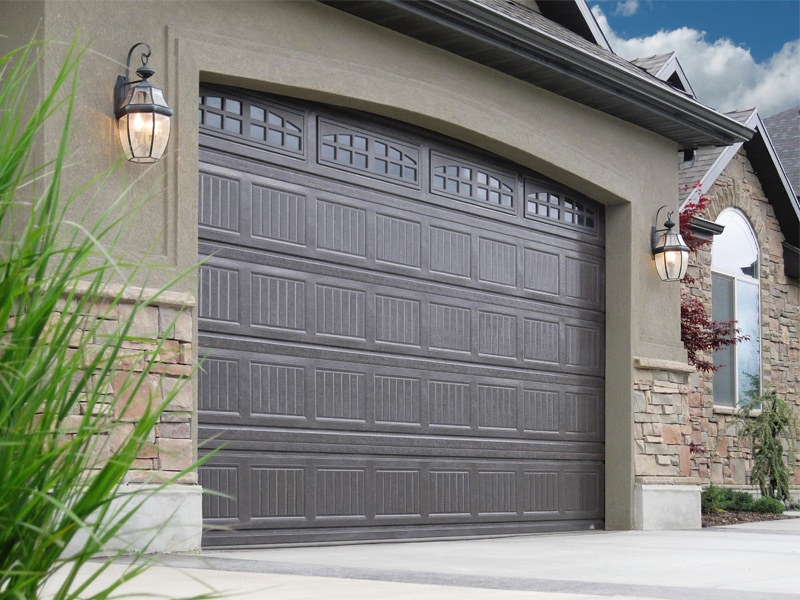
Material choice depends on your priorities. If durability and aesthetics are paramount, a brick or concrete garage might be worth the investment. If budget and low maintenance are key, a metal carport could be the answer.
Aesthetics
When it comes to curb appeal and blending seamlessly with your home’s style, the battle between garage and carport takes an aesthetic turn. Let’s unveil the design potential of each contender.
Garage:
- Classic Charm: Traditional brick or wood garages offer timeless elegance, complementing many architectural styles.
- Customizable Canvas: Doors, windows, and paint colors allow for personalization, reflecting your taste and home’s design.
- Integrated Appeal: Attached garages create a cohesive look, enhancing your home’s overall aesthetic.
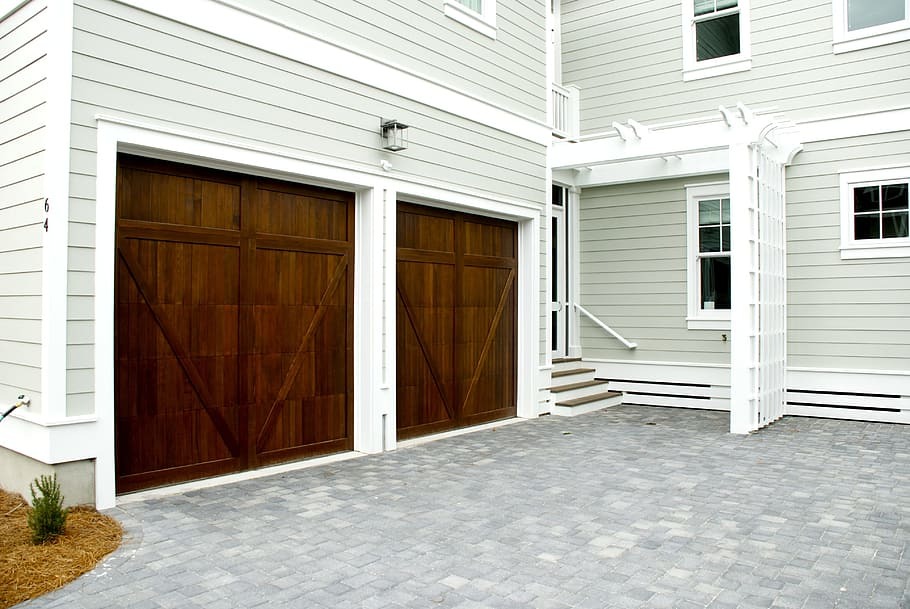
Carport:
- Modern Simplicity: Sleek metal or fabric carports provide a contemporary touch, ideal for modern or minimalist homes.
- Open Air Appeal: The airy structure allows for light and visual connection to the surrounding landscape.
- Versatility Unveiled: Detached carports offer flexibility in placement, creating unique outdoor living spaces or carpool areas.
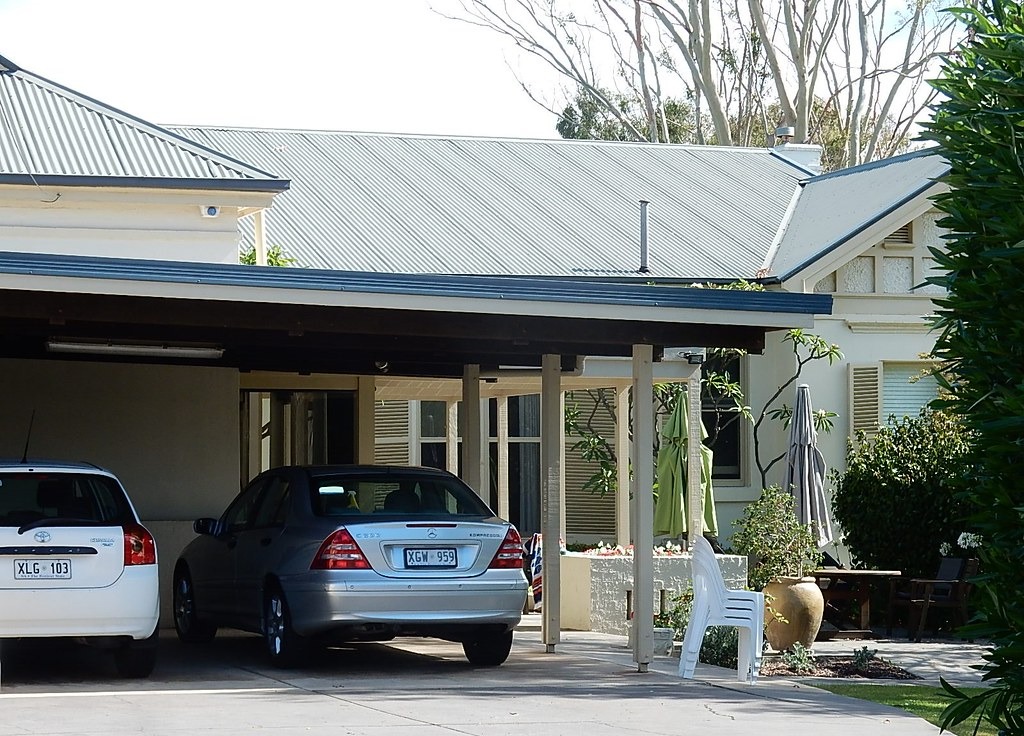
Material Musings:
- Wood: Offers warmth and natural beauty, but requires maintenance. Paint or stain choices personalize the look.
- Brick: Traditional and sophisticated, brick carports add instant curb appeal, especially in classic neighborhoods.
- Metal: Sleek and modern, metal carports come in various colors and finishes, but can appear industrial in some settings.
- Fabric: Lightweight and customizable, fabric carports offer vibrant colors and patterns, but might not match all architectural styles.
Beyond the Basics:
- Garage Doors: From classic wood to modern glass, your choice of garage door significantly impacts the aesthetic.
- Lighting: Strategically placed lights around the carport or garage can add visual interest and improve safety.
- Decorative Touches: Plants, outdoor furniture, or even artwork near the structure can personalize the space and elevate its curb appeal.
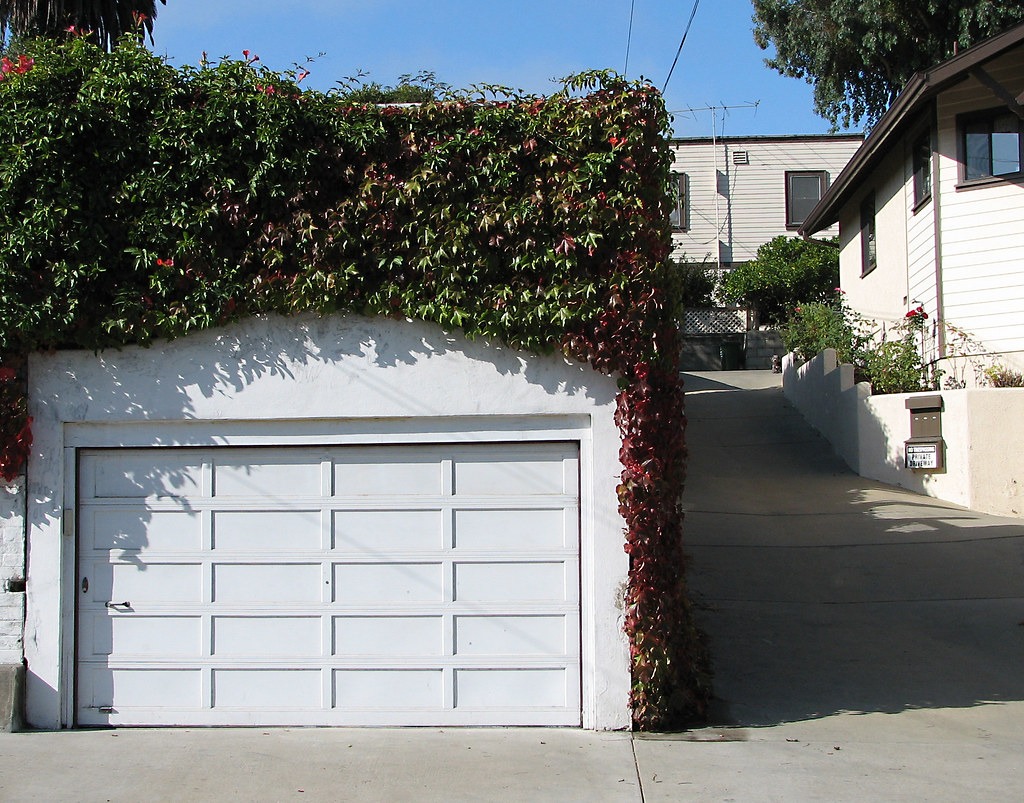
Consider your home’s style and surrounding environment. A traditional brick garage might enhance a colonial home, while a modern metal carport could complement a minimalist bungalow. Don’t forget about landscaping; integrating plants and greenery around either structure can soften its lines and enhance its visual appeal.
Different Ways of Using
Beyond their core function of sheltering your car, both garages and carports offer surprising versatility. Let’s explore the various ways you can utilize each contender.
Garage: The Multifunctional Marvel
- Workshop Haven: With ample space and sturdy walls, garages transform into DIY workshops for woodworking, car tinkering, or crafting projects.
- Home Gym Champion: Install exercise equipment, create a yoga studio, or set up a personal fitness haven within the enclosed garage walls.
- Entertainment Arena: Host game nights, movie screenings, or even pool parties in a transformed garage with comfortable seating and entertainment systems.
- Home Office Haven: Escape the distractions of the house and create a dedicated workspace with controlled temperature and privacy in your garage.
- Guest Quarters: Convert a portion of the garage into a cozy guest room with a sleeping area, basic amenities, and privacy.
- Storage Superhero: From tools and bikes to holiday decorations and seasonal gear, garages offer secure, organized storage for a multitude of belongings.
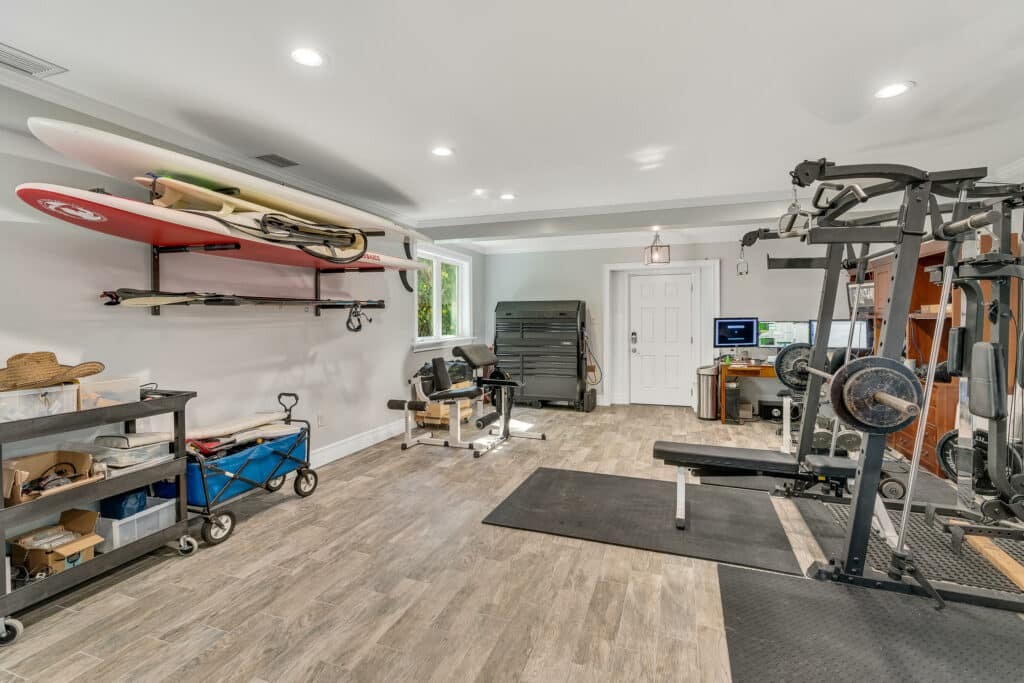
Carport: The Open-Air Oasis
- Outdoor Dining Area: Extend your living space by creating a covered patio for al fresco dining, grilling, or entertaining under the carport.
- Play Zone Paradise: Set up a covered play area for kids, complete with swings, slides, or a sandbox, protected from the sun and rain.
- Gardening Haven: Utilize the carport as a covered space for potting plants, starting seedlings, or protecting delicate garden equipment.
- Outdoor Gym Arena: Set up exercise equipment like a pull-up bar, yoga mats, or resistance bands for workouts under the open carport.
- Carwash Station: Use the carport as a designated area for washing your car, sheltered from the sun and offering easy access to water and cleaning supplies.
- Outdoor Storage: While exposed to the elements, carports can provide basic weather protection for bulky items like firewood, patio furniture, or outdoor tools.
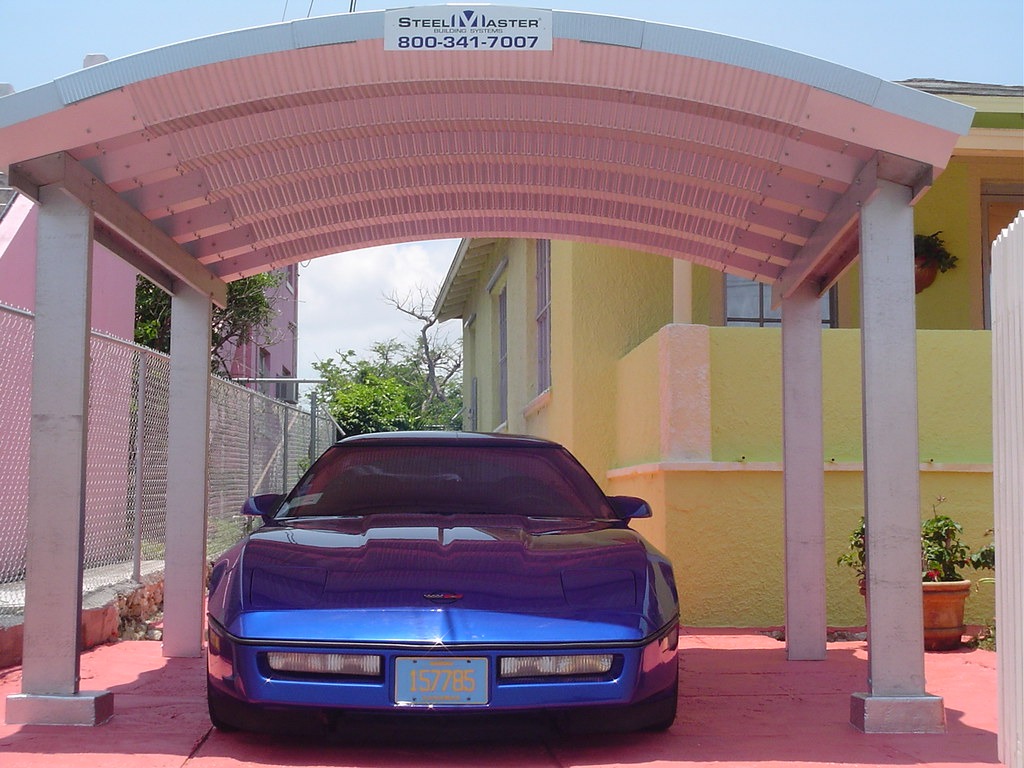
The possibilities are limited only by your imagination and DIY skills. Garages offer more enclosed space for conversion, while carports provide a unique open-air environment. Consider your lifestyle, hobbies, and space needs to unlock the potential of your chosen shelter.
You may also like: 7 Best Garage Tents Under $300
Home Value
When it comes to property value, the battle between garage and carport takes another turn, impacting your home’s market appeal and potential resale price. Let’s weigh the economic implications of each contender.
Home Value Champion:
- Garage: The clear victor! Attached garages generally add more value to your property, sometimes increasing its worth by 5-10%, depending on size, location, and overall quality. This value addition can offset some of the initial construction costs.
- Carport: Impact Varies. Detached carports might not significantly impact property value, especially in areas where they are common. However, attached carports with high-quality materials and integrated designs could offer some value addition, particularly in regions with limited covered parking options.
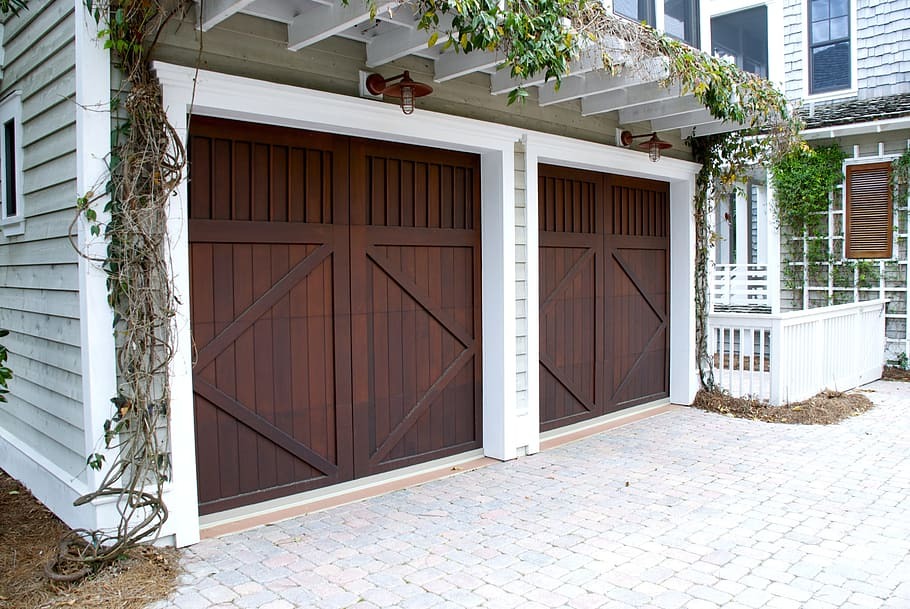
Value Factors:
- Location: Garages tend to add more value in areas with harsh weather conditions or limited off-street parking. In warmer climates with ample parking options, the impact might be less significant.
- Quality and Design: Higher-quality materials, finished garages with features like epoxy floors or storage cabinets, and attached designs contribute more to value than basic, detached carports.
- Curb Appeal: A well-maintained, aesthetically pleasing garage can enhance the overall look of your home and boost its market appeal. Carports, especially simple or poorly designed ones, might have less impact.
- Future Buyer Preferences: Consider the typical buyer profile in your area. If families or car enthusiasts are common, a garage will likely be more appealing and add more value.
While garages generally hold the home value crown, individual market dynamics can influence both options. Consult with a local real estate professional for a more accurate assessment of the impact on your specific property.
Ultimately, the perfect parking solution is the one that strikes the right balance between your needs and budget. Weigh the pros and cons of each option carefully, and remember, a happy car is a well-protected car, regardless of its chosen shelter.

